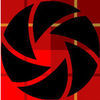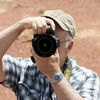JPEG~TIF Question
May 4, 2014 15:16:59 #
RWR
Loc: La Mesa, CA
Since converting RAW to TIF or JPEG results in respectively smaller files - less information - what accounts for the larger file when saving an image shot as JPEG to TIF?
May 4, 2014 15:33:29 #
amehta
Loc: Boston
RWR wrote:
Since converting RAW to TIF or JPEG results in respectively smaller files - less information - what accounts for the larger file when saving an image shot as JPEG to TIF?
TIFF files can be bigger or smaller than the raw file, depending on whether you choose 8-bit or 16-bit tiff. The 8-bit tiff files are larger than the 8-bit JPEG files because the tiff files do not do any "spatial compression", while the jpeg algorithm does, which eliminates some of the the finest detail.
May 4, 2014 16:00:02 #
amehta wrote:
TIFF files can be bigger or smaller than the raw file, depending on whether you choose 8-bit or 16-bit tiff. The 8-bit tiff files are larger than the 8-bit JPEG files because the tiff files do not do any "spatial compression", while the jpeg algorithm does, which eliminates some of the the finest detail.
amehta, i shoot, save, make adjustments too and post using jpeg exclusively. Load and save probably 10 times between shot and post.
Is there any real advantage to my going to TIFF format?
May 4, 2014 17:00:46 #
I almost always convert to TIFF if I plan to do editing. Especially if I think I may eventually do re-edits on the image -among other things, cropping and resizing. Editing on an image that is not compressed is less likely to produce unwanted artifacts (such as banding), and generally retains more fine detail in the end. And for this reason I prefer to print from TIFF format rather than JPEG.
May 4, 2014 17:47:11 #
RWR
Loc: La Mesa, CA
amehta wrote:
TIFF files can be bigger or smaller than the raw file, depending on whether you choose 8-bit or 16-bit tiff. The 8-bit tiff files are larger than the 8-bit JPEG files because the tiff files do not do any "spatial compression", while the jpeg algorithm does, which eliminates some of the the finest detail.
I appreciate your response, clears it up quite well. I've been shooting JPEGs since losing the use of the software packaged with my camera when I downgraded from XP to Windows 7, but am going to start doing some post processing soon. (Have Windows 8.1 on another that I would like to upgrade to 3.1, or even DOS 1.0, but that's another story, for another forum.) :)
May 4, 2014 20:38:27 #
amehta
Loc: Boston
oldtigger wrote:
amehta, i shoot, save, make adjustments too and post using jpeg exclusively. Load and save probably 10 times between shot and post.
Is there any real advantage to my going to TIFF format?
Is there any real advantage to my going to TIFF format?
I think loading and saving 10 times, with edit steps each time, can start to have perceptible jpeg artifacts. If you are making this many adjustments, it seems that you care about the final result, so I would suggest a lossless format like 16-bit TIFF or linear DNG.
When I do edits on my raw files, I don't use a jpg until the last step.
May 4, 2014 20:44:31 #
amehta
Loc: Boston
RWR wrote:
I appreciate your response, clears it up quite well. I've been shooting JPEGs since losing the use of the software packaged with my camera when I downgraded from XP to Windows 7, but am going to start doing some post processing soon. (Have Windows 8.1 on another that I would like to upgrade to 3.1, or even DOS 1.0, but that's another story, for another forum.) :)
Going from XP to Windows 7 is not a downgrade. Every other release is a dud, and Vista was the dud between them. Windows 7 is fairly good. Windows 8 was annoying, so hopefully Windows 8.1 will be the next one to be reasonable. :-)
You should be able to download your camera's editing software from their web site. There are a few free options people like.
I do not suggest that anyone "needs" to process raw pictures, but I think it is important to shoot with at least raw+jpeg. You generally can't go back and shoot the exact picture again, but you can always decide in a few years that you want to go back and process them again. It is possible to edit jpeg files, but there is more that can be done with raw files, if you want to. I don't mean to get into the raw vs jpeg question (one of the "UHH Top-3 Dogmatic Discussion Topics (TM)" ), I'm just suggesting this so you have the option to change your mind on the question in the future. :-)
May 4, 2014 22:58:33 #
RWR
Loc: La Mesa, CA
amehta wrote:
Going from XP to Windows 7 is not a downgrade. Ev... (show quote)
Windows 7 is not really that bad, and I liked 8 at first, have had nothing but conflicting issues since going to 8.1. I call it Windows RS (ReStart). I'll resolve them, though, and will probably put 8.1 on this machine.
I tried to upgrade the software from Fuji a couple of years ago, was not available. I only used it for converting RAW files, anyway, and experimented with some of the features (ever try to sharpen a sharp image - garish!) I'll be trying a few RAW converters to see which I like best, and proceed from there.
I'll follow your valuable advice, you have been very helpful. Thanks much. :)
May 4, 2014 23:11:40 #
amehta
Loc: Boston
RWR wrote:
Windows 7 is not really that bad, and I liked 8 at... (show quote)
Glad to help. Good luck! :-)
May 5, 2014 08:58:28 #
amehta wrote:
Going from XP to Windows 7 is not a downgrade. Every other release is a dud, and Vista was the dud between them. Windows 7 is fairly good. Windows 8 was annoying, so hopefully Windows 8.1 will be the next one to be reasonable. :-)
You should be able to download your camera's editing software from their web site. There are a few free options people like.
You should be able to download your camera's editing software from their web site. There are a few free options people like.
I ran into a similar problem. My solution? Switch to Linux and run my necessaries under Wine or a Virtualbox of XP. All is better-than-well, now! Plus I added Gimp and Shotwell for my Photo/Video needs.
BTW, Black Lab Linux is based on Ubuntu 12.04 for stability but includes latest Kernel upgrades and newest versions of programs like Wine and Gimp.
Too many of my necessaries will not even run under Windows 8.x to even bother (yes I checked and even attended a "class" on 8.x).
May 5, 2014 10:34:43 #
RWR wrote:
Since converting RAW to TIF or JPEG results in respectively smaller files - less information - what accounts for the larger file when saving an image shot as JPEG to TIF?
Saving the raw as tif usually results in a larger file.
When you save as jpg the file is compressed to different degrees depending on settings.
Jpg is lossy compression, meaning it takes only the data it needs to produce the image according to presets in software or camera, and throws away the rest of the data. Every time you edit a jpg and re save it you loose more data, and quality is degraded. You get more artifacts from jpg compression.
Tif files are generally not compressed. They dont "throw away" data like jpg.
You can tweak a tif file multiple times and maintain quality, and since there is more data to work with it is more "editable".
When I process my raw files I save as adobe rgb tif. They are huge, but I have huge hard drives so not a big deal.
Only time i convert to srgb jpg is when I need to upload to the web for whatever reason.
May 5, 2014 10:35:25 #
amehta
Loc: Boston
Scotchman wrote:
I ran into a similar problem. My solution? Switch ... (show quote)
That's a good solution! :-D
May 5, 2014 10:38:11 #
amehta wrote:
TIFF files can be bigger or smaller than the raw file, depending on whether you choose 8-bit or 16-bit tiff. The 8-bit tiff files are larger than the 8-bit JPEG files because the tiff files do not do any "spatial compression", while the jpeg algorithm does, which eliminates some of the the finest detail.
Even 8 bit tif is larger than the raws...be it lossless compressed or un compressed.
May 5, 2014 10:39:42 #
amehta wrote:
That's a good solution! :-D
Linux is good for geeks that like to spend a lot of time fiddling with the operating system.
Windows 7 is for people that like to get something productive done.
May 5, 2014 10:49:41 #
JimGuy wrote:
Linux is good for geeks that like to spend a lot of time fiddling with the operating system.
Windows 7 is for people that like to get something productive done.
Windows 7 is for people that like to get something productive done.
I'm sure you don't mean this, but change just a couple of words and you said,
raw is good for geeks that like to spend a lot of time fiddling with post processing.
Jpeg is for people that like to get something productive done.
If you want to reply, then register here. Registration is free and your account is created instantly, so you can post right away.



